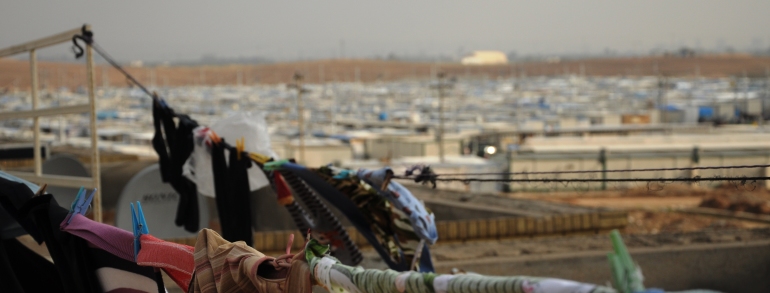Iraq Humanitarian Bulletin May 2016 | Issued on 19 June, from OCHA – United Nations Office for the coordination of Humanitarian Affairs.
Download the “Iraq: Humanitarian Bulletin, May 2016 | Issued on 19 June“
HIGHLIGHTS
- Emergency response to people displaced from Fallujah in Anbar and within Makhmur in Erbil is ongoing; shelter is insufficient in both locations, with the prepared camps overcrowded.
- About 190,000 people have been newly displaced along the Anbar and Mosul corridors this year.
- Humanitarian funding is running out and several programmes are at risk of closure.
Thousands of families have fled Fallujah
Thousands more people could still be on the move amidst ongoing fighting Military operations led by Iraqi security forces to retake Fallujah in Anbar from ISIL began on 22 May. Since then, people have fled Fallujah in rapidly increasing numbers, with more than 83,000 people fleeing Fallujah and surrounding areas by 18 June. Most people initially fled outlying areas of Fallujah, but on 7 June reports were received of some families leaving Fallujah city itself, as military operations began to enter the city centre. In the last few days, tens of thousands of people have been allowed to leave the centre of town.
The sudden increase in displacement in early June follows both increased opportunities for families to flee as well as hundreds of other families demonstrating a willingness to take extremely high risks to try to escape, sometimes with grave consequences. There are reports of people drowning as they tried to escape, or being injured or killed by snipers or improvised explosive devices. Many families are separated during their escape with men and teenage boys being separated from their families for security screening.
The families still trapped inside Fallujah are thought to have only limited, if any food, and there appear to be few sources of safe drinking water. The risk for disease outbreaks is high. While it is not clear how many civilians are still in the city, the UN estimates it could still be thousands of families. Nothing is more important than ensuring that civilians are protected and have access to life-saving assistance. The UN and partners continue to call on all parties to the conflict to do everything possible to meet their obligations under international humanitarian law.

